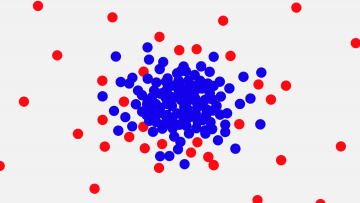Derek Thompson in The Atlantic:
 Two themes seem to define the 2020 election results we’ve seen so far—and also build on a decade or more of political developments: the depolarization of race and the polarization of place. Democrats have historically won about 90 percent of the Black vote and more than 65 percent of the Latino vote. But initial returns suggest that Joe Biden might have lost ground with nonwhite voters. The most obvious drift is happening among Latinos. In Florida, Biden underperformed in heavily Latino areas, especially Miami-Dade County, whose Cuban American population seems to have turned out for Donald Trump. Across the Southeast, majority-Latino precincts in Florida, Georgia, and North Carolina swung 11.5 points toward Republicans since 2016. In southern Texas, Trump won several heavily Latino counties in the Rio Grande Valley, including Zapata, the second-most-Latino county in the country, which hadn’t voted for a Republican in 100 years. Even in the Democratic fortress of Massachusetts, cities with the highest share of Latino voters saw the starkest shifts toward Trump, according to Rich Parr, the research director for the MassINC Polling Group.
Two themes seem to define the 2020 election results we’ve seen so far—and also build on a decade or more of political developments: the depolarization of race and the polarization of place. Democrats have historically won about 90 percent of the Black vote and more than 65 percent of the Latino vote. But initial returns suggest that Joe Biden might have lost ground with nonwhite voters. The most obvious drift is happening among Latinos. In Florida, Biden underperformed in heavily Latino areas, especially Miami-Dade County, whose Cuban American population seems to have turned out for Donald Trump. Across the Southeast, majority-Latino precincts in Florida, Georgia, and North Carolina swung 11.5 points toward Republicans since 2016. In southern Texas, Trump won several heavily Latino counties in the Rio Grande Valley, including Zapata, the second-most-Latino county in the country, which hadn’t voted for a Republican in 100 years. Even in the Democratic fortress of Massachusetts, cities with the highest share of Latino voters saw the starkest shifts toward Trump, according to Rich Parr, the research director for the MassINC Polling Group.
Some evidence suggests that Biden lost support among other minority groups as well. In North Carolina’s Robeson County, where Native Americans account for a majority of voters and which Barack Obama won by 20 points in 2012, Biden lost by 40 points. In Detroit, where nearly 80 percent of the population is Black, Trump’s support grew from its 2016 levels—albeit by only 5,000 votes. (Exit polls also found that Black and Latino men in particular inched toward Trump in 2020, but these surveys are unreliable.)
More here.
